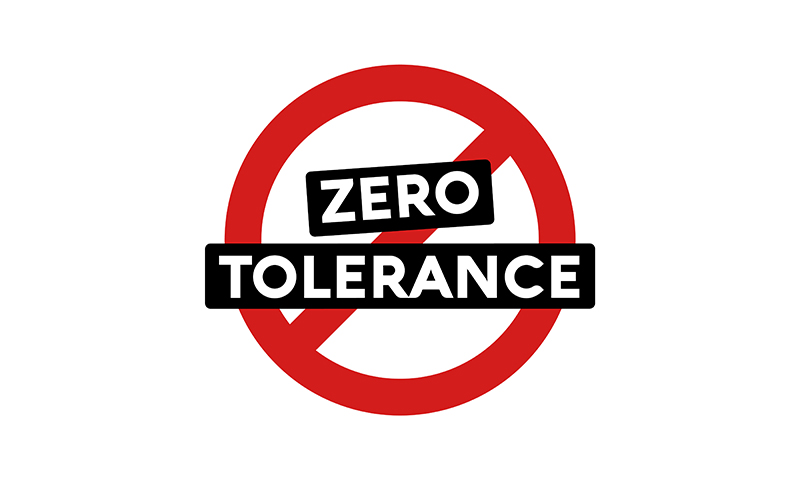Good Riddance, Zero Tolerance
What a difference a new administration makes. After four years of being treated as “the enemy,” the firearms industry is being treated as the lawful, Constitutionally backed business it is once again.
Winding back the clock to June 2021, the Biden administration announced a “zero-tolerance policy for rogue gun dealers that willfully violate the law.” This policy, enforced by ATF, resulted in the persecution of dealers for minor infractions (such as paperwork errors), causing many to either lose their license or simply give them up under the threat of prosecution.
This increased scrutiny caused some dealers to exit their businesses completely. The NRA journal, America’s First Freedom, reported in April 2023 that there were 1,619 fewer licensed firearms dealers than there were before then-President Biden assumed office in Jan. 2021. Further, the ATF revoked more gun store licenses last year than any other year over at least the past two decades, with 195 licenses revoked during the 2024 fiscal year (up from 173 in 2023).
A “Second-Class Right” No More
All this to say: the April 7 announcement repealing the so-called “zero tolerance” policy represents a complete 180-degree shift for the Department of Justice (DOJ) and ATF.
“This Department of Justice believes the 2nd Amendment is not a second-class right,” said U.S. Attorney General Pam Bondi, in a press release announcing this change. “The prior administration’s ‘Zero Tolerance’ policy unfairly targeted law-abiding gun owners and created an undue burden on Americans seeking to exercise their constitutional right to bear arms — it ends today.”
Additionally, the DOJ and ATF announced plans to revisit the regulatory framework surrounding stabilizing braces (Final Rule 2021R-08F) and the definition of “engaged in the business” of firearms dealing (Final Rule 2022R-17F).
“Today’s repeal of the ‘Zero Tolerance’ policy and the comprehensive review of stabilizing brace regulations and the definition of ‘engaged in the business’ marks a pivotal step toward restoring fairness and clarity in firearms regulation. We’re committed to working with all stakeholders to ensure our policies are balanced, constitutional and protective of Americans’ Second Amendment rights,” said Kash Patel, former acting ATF director.
April 9, President Trump appointed Daniel Driscoll as acting director of the ATF. Driscoll also serves as secretary of the Army. Patel will continue in his role as director of the FBI.
The following sentence from the April 7 press release caught my attention (emphasis added is mine): “The decision to review the Stabilizing Brace rule, which sought to reclassify certain firearms as short-barreled rifles, as well as revising the guidelines for determining who is considered ‘engaged in the business’ of selling firearms, reiterates constitutional approaches to firearm regulations.”
A government agency aiming to regulate using the Constitution shouldn’t be a novel concept — but it’s a breath of fresh air after the past four years.
Reactions From Industry Organizations
It will be of little surprise that firearm industry organizations hailed this announcement. Here’s a collection of some responses:
“NSSF applauds today’s announcement by the DOJ and ATF that the Biden-era ‘zero tolerance’ policy is being eliminated. This is great news for the industry that provides for the lawful exercise of the Second Amendment. We have worked with the Trump administration to secure this critical industry victory since the first day of the president’s second term and we value the cooperation we’ve received at DOJ and ATF to arrive at today’s decision,” said Lawrence G. Keane, NSSF SVP and general counsel.
“This reversal is another example of the Trump administration’s commitment to protecting and strengthening the Second Amendment rights of peaceable Americans,” said John Commerford, executive director of NRA Institute for Legislative Action (ILA) in a statement posted on X. “We look forward to the ATF’s work to formally repeal the rules that expanded the definition of who is a firearms dealer and regulated stabilizing braces.”
“Under President Trump’s leadership, we’re seeing a realignment toward the Constitution. This repeal and regulatory review of ATF’s ‘Zero Tolerance’ policy sends a clear message the era of Biden gun control is over,” stated Aidan Johnston, director of federal affairs for Gun Owners of America. “GOA is grateful for the administration’s commitment to restoring Second Amendment rights and standing with law-abiding gun owners nationwide.”
The Fight Isn’t Over
On the other side of the coin, anti-gun organizations disparaged this change in federal policy.
“The impact here is simple: putting gun dealers who break the law back in business will increase crime,” said Emma Brown, executive director at GIFFORDS. “Reckless dealers who are willing to sell guns to traffickers and criminals have been given our president’s seal of approval at the cost of Americans’ safety.”
Brown continued, “Repealing this rule benefits two parties: The gun sellers knowingly endangering communities, and the gun CEOs getting rich off of weapons sales to criminals.”
While Everytown didn’t disseminate a press release in response to this ruling, it made a significant announcement April 8. It introduced the “Everytown Rule of Law Fund” — a program with the stated goal of investing $10 million to elect Attorneys General in up to 10 swing states.
“Attorneys General have been steadfast partners when it comes to holding the gun industry accountable, and now they’re the tip of the spear in defending our system of checks and balances,” said John Feinblatt, president of Everytown for Gun Safety.
Since 2017, Everytown has invested $5 million to elect Attorneys General nationwide. So doubling this investment across the 2025 and 2026 election cycles signals the value they’re placing on state-level policy.
Case in point: April 10, Colorado Gov. Jared Polis signed SB25-003 into law, which bans the sale of AR-15s unless Coloradans obtain approval from their county sheriff. It also bans the sale of semi-autoo shotguns and pistols that can accept detachable magazines, unless lawful purchasers obtain similar approval from county sheriffs and obtain a permit-to-purchase.
While we can celebrate the wins at the federal level, it’s clear the battlegrounds will be at the state and local levels.




